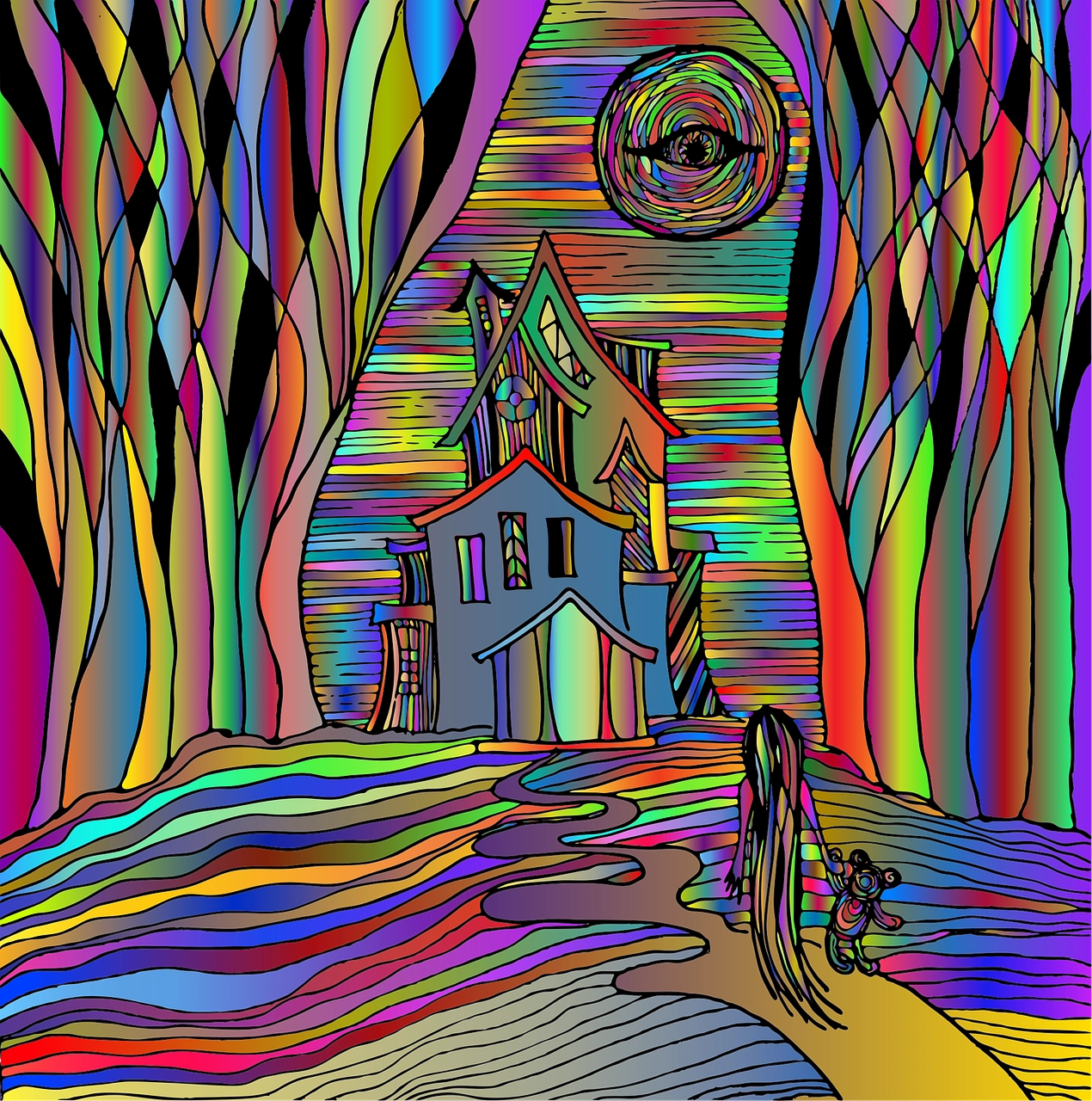Are Astrology Dates Changing? Get the Facts

Looking for more amazing products? Check out our online store and explore our collection here! Happy shopping!
Before diving in, please note: This post is for informational purposes only. If you’d like to know more about how we approach topics, feel free to check out our friendly Disclaimer Page.
Hey there, amazing readers! 
We’re committed to delivering quality posts, and your support (even just sticking around despite the ads) means everything to us. So, bear with us, and thanks for helping us keep the good vibes rolling. Now, on to the fun stuff!
TRANSLATE BUTTON AT THE END OF THE ARTICLE
A Quick Overview
Astrology has fascinated many for centuries, weaving its way through cultures and civilizations.
Whether you’re a firm believer or a curious skeptic, the conversation about astrology often stirs debate.
One of the hottest topics lately is whether astrology dates are changing.
Some claim that our zodiac signs may no longer align with the stars.
So, let’s dive into the facts, clear up any confusion, and understand what this means for each of us.
Understanding Astrology: A Brief Overview for All
Astrology is the study of how the positions of celestial bodies like stars and planets influence human affairs and natural phenomena.
It’s a belief system that dates back thousands of years.
Different cultures have their own interpretations of how these heavenly bodies affect our lives, and various systems have emerged.
At its core, astrology suggests that the position of the sun, moon, and planets at the exact moment of our birth shapes our personalities and life paths.
For instance, if you were born when the sun was in Gemini, you’re likely to exhibit traits associated with that sign—like being talkative and curious.
Astrologers use a zodiac wheel, which is divided into twelve signs, each corresponding to specific dates.
These signs are associated with unique qualities and elements, making astrology a rich tapestry of insights.
People often consult horoscopes for daily guidance, relationship advice, and career insights.
While some may take this with a grain of salt, others swear by its accuracy, finding profound meaning in the celestial alignments.
The Zodiac Wheel: A Fun Look at the Signs
The zodiac wheel is a circular chart divided into twelve segments, each representing a zodiac sign.
Here’s a quick rundown of the signs and their associated dates:
Aries: March 21 – April 19
Taurus: April 20 – May 20
Gemini: May 21 – June 20
Cancer: June 21 – July 22
Leo: July 23 – August 22
Virgo: August 23 – September 22
Libra: September 23 – October 22
Scorpio: October 23 – November 21
Sagittarius: November 22 – December 21
Capricorn: December 22 – January 19
Aquarius: January 20 – February 18
Pisces: February 19 – March 20
Each sign has its own mythology, element, and ruling planet.
For example, Leo, ruled by the sun, embodies confidence and leadership.
On the flip side, Pisces, ruled by Neptune, is often described as empathetic and intuitive.
As you can see, the zodiac wheel is a playful way to categorize human traits and behaviors.
But hold that thought—are these dates set in stone?
What Are Astrological Dates and Why Do They Matter?
Astrological dates mark the period when the sun is in each zodiac sign.
They matter because they shape the foundational aspects of astrological readings.
Knowing your astrological sign helps you understand personality traits and life events that may resonate with you.
Astrologers consider various factors when interpreting your chart, such as your moon sign and rising sign.
However, your sun sign is often the most recognized.
It’s the one associated with your birth date and commonly used in horoscopes.
Astrological dates can impact how people view themselves and their relationships.
For many, knowing their sign can offer insights into their strengths and weaknesses.
It’s like having a cosmic guidebook tailored to your personality.
In short, these dates are more than just numbers on a calendar; they can influence how we perceive our lives and interactions with others.
The Influence of the Stars: Debunking Common Myths
Many myths surround astrology that often leads to misunderstandings.
One common misconception is that astrology is purely superstition.
While it’s true that astrology cannot be scientifically validated like other disciplines, it serves as a valuable tool for reflection and self-awareness.
Another myth is that all people born under a sign are the same.
In reality, many factors contribute to an individual’s personality.
Your upbringing, environment, and life experiences play significant roles, alongside your zodiac sign.
Some folks also believe that astrology is static—that once you know your sign, nothing changes.
However, the universe is dynamic.
The positions of celestial bodies shift, and our understanding of astrology can evolve too.
It’s also important to remember that astrology isn’t a one-size-fits-all endeavor.
Many practitioners tailor their readings based on individual experiences.
So, if someone feels astrological readings are off, it might be because they haven’t found the right astrologer or method that resonates with them.
Have Astrology Dates Really Changed Over Time?
You may have heard that astrology dates are changing.
This topic has sparked plenty of debates and concerns.
But are they really shifting?
Technically, no.
The dates associated with the zodiac signs themselves have not changed.
However, there are some nuances that can lead to confusion.
The main source of misunderstanding arises from the precession of the equinoxes, a phenomenon where the Earth’s axis wobbles and alters the position of the stars over time.
This means the constellations in the night sky have shifted slightly over thousands of years.
In practice, this doesn’t mean your sign has changed—rather, it means that the astrological sign you associate with your birth date may not align with the current constellation in the sky.
The zodiac system we use today is based on tropical astrology, which is fixed to the seasons rather than the stars.
So while the stars are moving, the dates we follow remain the same.
The Role of Precession: What Is It and Why Care?
Precession refers to the gradual shift in the orientation of the Earth’s rotational axis.
Picture a spinning top that starts to wobble as it slows down.
This wobbling causes the stars to appear to shift positions over long periods.
Why should you care?
Because this shift affects the zodiac signs as we know them.
The last time the constellation positions were firmly realigned with the zodiac was over 2,000 years ago.
Astrologers who follow sidereal astrology, which is based on the actual positions of the constellations, may suggest that your astrological sign could differ from the tropical sign assigned based on your birth date.
For example, if you were born in early December, you might consider yourself a Sagittarius based on the tropical zodiac, but a sidereal astrologer might argue that you are a Scorpio.
The bottom line?
Precession highlights the complexities of astrology and the importance of understanding different astrological systems.
New Discoveries: Are Astrological Signs Shifting?
As we explore the astrological landscape, new discoveries and interpretations continuously emerge.
Some astrologers are starting to consider factors like Ophiuchus, a constellation that some argue should be included in the zodiac.
Ophiuchus, often referred to as the "serpent bearer," falls between Scorpio and Sagittarius in the sky.
Its inclusion would adjust the traditional zodiac dates, raising eyebrows and questions.
However, most astrologers and followers still adhere to the classic twelve-sign system.
It’s worth noting that astrology is a living tradition.
As we discover more about our universe, interpretations can shift.
Still, the core principles of astrology remain steadfast for many practitioners.
So, are your signs changing?
Technically, they haven’t, but the conversation surrounding astrology is always evolving.
The Impact of Ophiuchus: A New Zodiac Player?
Ophiuchus has stirred quite a buzz in astrological circles.
While it’s been known for centuries, mainstream astrology largely ignores this thirteenth sign.
If we include it, the dates would shift:
Ophiuchus: November 29 – December 17
Including Ophiuchus means that the dates for other signs would change as well—creating a domino effect that would confuse many.
For instance, those born under Sagittarius might find themselves categorized as Ophiuchus.
While some enthusiasts champion this shift, traditional astrologers argue that adding Ophiuchus dilutes the rich history of the zodiac.
They maintain that the twelve-sign system is deeply rooted in human culture and psychology.
For the majority of people, knowing about Ophiuchus may simply add to the cosmic conversation without changing their astrological identity.
How to Find Your True Astrological Sign Today
Wondering what your true astrological sign is?
First, check the traditional zodiac dates.
If you fall within the conventional ranges, that’s your sign.
However, if you’re curious about potential changes, look into sidereal astrology.
This approach can offer a different perspective based on the constellation positioning.
Another option is to consult with a professional astrologer.
They can provide a detailed chart based on your birth time and location, offering insights into your sun sign, moon sign, and rising sign.
Online resources and apps also make it easier than ever to explore your astrological identity.
Just be sure to verify the source for accuracy!
The Science Behind Astrology: Fact or Fiction?
The scientific community largely views astrology as a pseudoscience.
They argue that there is no empirical evidence supporting the claims that celestial bodies influence our lives.
However, many people find value in astrology, using it as a tool for introspection and personal growth.
Astrology can offer a framework for understanding oneself and one’s relationships.
While it might not be scientifically validated, it has historical significance and cultural relevance.
Some studies suggest that people who engage with astrology report feeling more connected to their identities and experiences.
This indicates that, for many, astrology serves a psychological purpose.
In the end, whether you view astrology as a science or an art, it undoubtedly has a unique place in our societies.
Embracing Change: What This Means for You
If you’re feeling concerned about potential shifts in your astrological sign, take a deep breath.
The essence of astrology is still rooted in the same core principles that have existed for centuries.
The conversation around changing astrological dates may seem intimidating.
Still, viewing it as an opportunity for growth can be refreshing.
You can explore new interpretations and understandings of yourself, which can lead to a deeper appreciation for your journey.
Whether you stick with your traditional sign or delve into sidereal astrology, embrace the insights that resonate with you.
After all, astrology is about self-discovery and understanding the universe around us.
Conclusion
So, are astrology dates changing?
The answer lies in the distinction between astrological systems and the interpretation of celestial movements.
While the dates tied to the zodiac signs have not changed, the conversation surrounding astrology continues to develop.
Understanding the complexities of astrology, including the role of precession and potential new players like Ophiuchus, gives us fresh perspectives.
Whether you’re a seasoned astrology enthusiast or just dipping your toes into the cosmic waters, remember that astrology is a tool for self-exploration.
It’s about finding meaning in your life and connecting with the universe.
So, keep looking up at the stars, and let your sign guide you on your journey!

The Enlightenment Journey is a remarkable collection of writings authored by a distinguished group of experts in the fields of spirituality, new age, and esoteric knowledge.
This anthology features a diverse assembly of well-experienced authors who bring their profound insights and credible perspectives to the forefront.
Each contributor possesses a wealth of knowledge and wisdom, making them authorities in their respective domains.
Together, they offer readers a transformative journey into the realms of spiritual growth, self-discovery, and esoteric enlightenment.
The Enlightenment Journey is a testament to the collective expertise of these luminaries, providing readers with a rich tapestry of ideas and information to illuminate their spiritual path.
Our Diverse Expertise
While our primary focus is on spirituality and esotericism, we are equally passionate about exploring a wide range of other topics and niches 

To ensure we provide the most accurate and valuable insights, we collaborate with trusted experts in their respective domains 
Our blog originally focused on spirituality and metaphysics, but we’ve since expanded to cover a wide range of niches. Don’t worry—we continue to publish a lot of articles on spirituality! Frequently visit our blog to explore our diverse content and stay tuned for more insightful reads.
Hey there, amazing reader! 
Check out our store here and take a peek at some of our featured products below! Thanks for being awesome!











